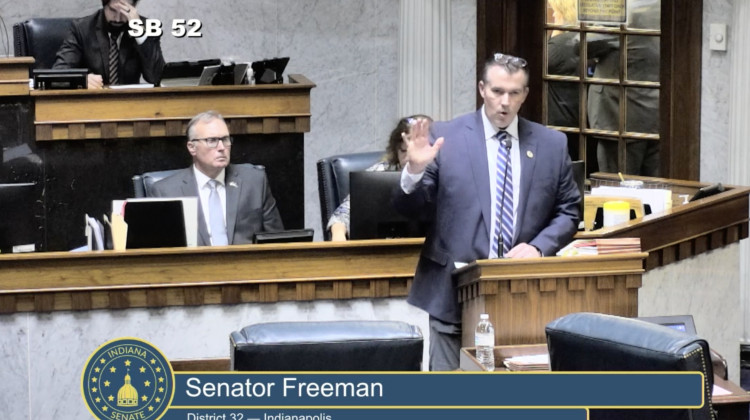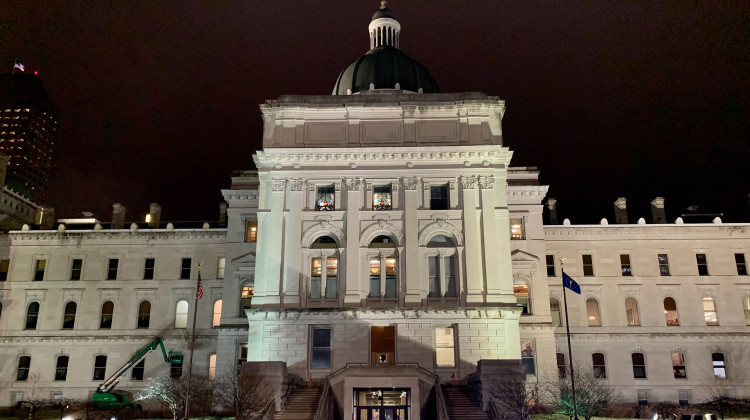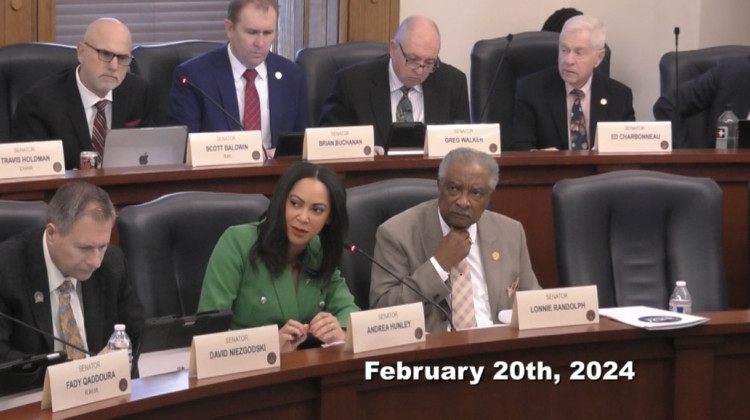
Senator Aaron Freeman (R-Indianapolis) discusses his bill blocking dedicated lanes for public transportation
Photo taken from a stream of the SenateThe Senate amended a bill Thursday prohibiting dedicated bus lanes for one year and added the creation of a task force to study the impact of those lanes.
Critics of the bill say it micromanages Indianapolis city government and could kill the proposed Blue Line, the city’s bus rapid transit system.
In addition to studying the impact of dedicated lanes, the bill was also amended to study the impact of no-turn on red signs.
The City of Indianapolis passed a proposal last year banning turns at red lights - even as the state legislature blocked the move.
Senator Aaron Freeman (R-Indianapolis) said his amendment is a compromise.
“No further signs would be put up until at least July 1 of 2025 to allow a study to be done,” he said.
Senator Faddy Qaddoura (D-Indianapolis) said both issues should be handled by city officials - not the statehouse.
“Why do we empower legislation to interfere with local government?” He asked.
Qaddoura also introduced an amendment that would refund Indianapolis for money it has already spent on the Blue Line designs.
“If the project is going to be killed the citizens are owed money,” he said. “Who is responsible to compensate these taxpayers for the $14 million that has already been spent?”
Senator Qaddoura’s amendment failed.
Senator Freeman said his bill would include a financial analysis of dedicated lanes - making any reimbursement premature.
In a statement, a spokesperson for IndyGo, which is behind the Blue Line project, said the one-year delay outlined in the latest version of Senate Bill 52 would only increase costs for the project and could impact federal funding qualifications.
“If the project costs exceed the $400M limit, we’ll need to apply under the New Starts program, and that criteria will be much more difficult to meet,” the spokesperson said.
The project is currently estimated to cost between $370 and $390 million.
The bill must pass a third reading before heading to the House.
Contact WBAA/WFYI reporter Benjamin Thorp at bthorp@wfyi.org.
 DONATE
DONATE








 View More Programs
View More Programs

 Support WFYI. We can't do it without you.
Support WFYI. We can't do it without you.